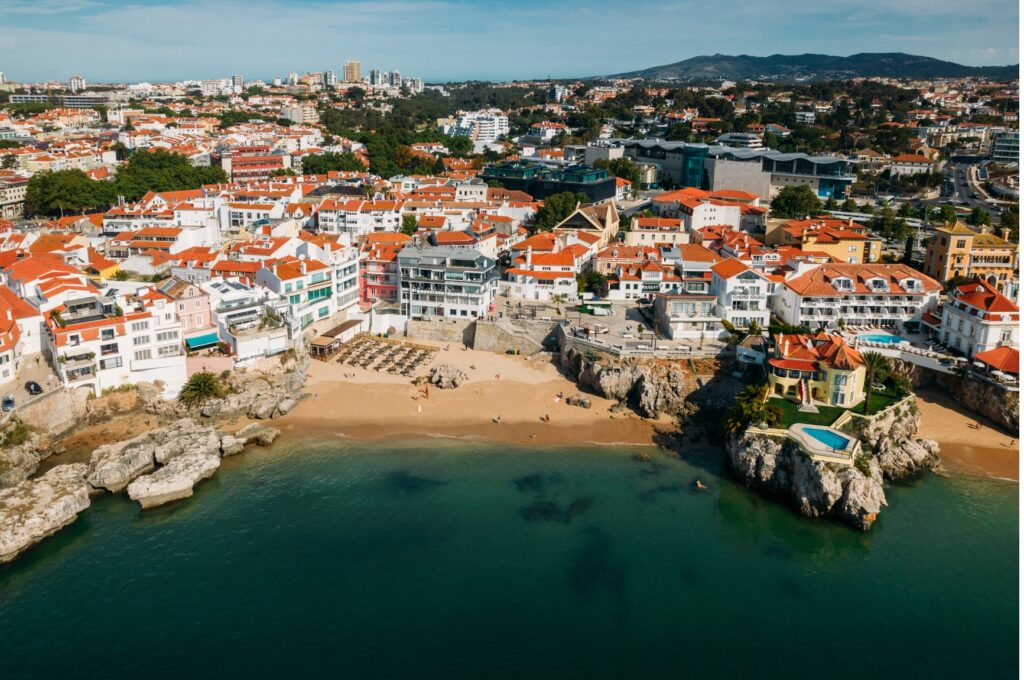Not Many People Know This About Renting in Portugal…
For a year now, I’ve been chronicling my new European adventure—relocating from Prague to Portugal. The most recent step in that journey fell into place last week.
My wife, Yulia, and I now have a lease agreement on a new apartment. In this case, “new” is exactly what it means: the apartment was just remodeled. We’ll be the first tenants.
It’s relatively small, just 900 square feet vs. the 1,075 we have now. But it’s lovely digs: three bedrooms, two baths, a little sun-nook connected to the living room that lets in a ton of light. Stylish moldings. A nice, inviting light-moss green paint on the walls. There’s an air of elegance about the place.
We’ll have a proper office Yulia and I can share. She’s found an interest in building and managing Pinterest and Etsy sites for herself. So, she wants a desk in the office, too.
Best of all, it’s a 20-minute walk to the beach and a bit less than that to the lovely little beachside community of Cascais.
I will say that this has been one of the more annoying aspects of moving to Portugal. And it speaks to a much larger issue you face as an American looking to move abroad. I’ll sum it as: “That’s not how we do things here.”
As Americans, we’re accustomed to a certain flow… a certain way of doing things. Right or wrong. But the rest of the world does not dance to an American beat.
Which means that moving abroad comes prepackaged with various unwritten rules. And you have to learn these rules and follow them, just like the locals.
You’re not going to change the world just because you don’t like how things are done locally. And you’re not going to get too far tilting against the local norms.
I’ve tried. I’ve failed. It is what it is and you just accept it.
To be clear, I’m not being negative about moving overseas. I want you to move overseas! Living life abroad—the adventure of it all—is the best life I’ve lived. I want you to follow me in that pursuit.
But… I also want you to know the reality of changing countries. Everyone needs some firsthand, on-the-ground advice. It’ll help you prepare for living overseas, put you in the right mindset, so that you know what to expect from the get-go.
Some of these unwritten rules are small(ish), like the way the Czech postal system works. It’s all kinds of crazy with packages that arrive from non-European Union countries.
Other unwritten rules are larger, such as those around apartment hunting in Portugal.

Some Portuguese landlords want guarantors to sign your apartment lease too. Just in case you flake, they want assurances they’ll be paid for rent and damages. Though I know a few people in Portugal by way of the crypto community, I don’t know anyone well enough that I’d feel comfortable asking them to serve as my guarantor.
No worries. The Portuguese have a solution…
Pay an entire year’s worth of rent upfront!
The apartments I’m looking at means I’d need to drop between $24,000 and nearly $32,000 in one fell swoop. Most of my wealth is wrapped up in stocks and crypto, and while I have enough cash to cover that cost, I really don’t relish the idea of draining such a large sum from my liquid assets.
Yulia and I need to pay for travel expenses to Portugal (we’re driving from Prague and turning it into a vacation with stops in northern Italy’s Lake District… Bordeaux, France… and somewhere in northern Spain). And we need to furnish the apartment since it’s totally empty.
Plus, we’ll probably decide to lease a car in Portugal. Cascais doesn’t have the mass-transit of Prague, and we want to drive about the country and into Spain on long weekends.
As I scoured real estate sites, I’d find great apartments… only to see the dreaded “guarantor” tagged on at the end. So, I just learned to move along to the next apartment.
Not all demand a guarantor, but those that don’t still typically required at minimum four to six months’ rent.
Luck smiled upon us because the landlord for the apartment we ultimately found only required four months’ rent upfront. That’s still $8,000, more than I’ve ever put down on an apartment. But in context of the Portuguese system, I see this as a victory.
So, Yulia and I are happy.
Plus, we now know we’re just a few weeks away from a new life by sea in Cascais. It’s a quaint little beach town about an hour west of Lisbon. There’s a famous farmers/fish market we can walk to. A photogenic and popular city center with everything we need, from banking to shopping to tons of restaurants. Palms and coastal pines everywhere.
A wide promenade running in front of a wide sandy beach.
Basically, it’s coastal resort living.
And I can guarantee the cost of living we’ll pay in a coastal resort in Portugal is far less than what we’d pay living in any coastal resort city in America.
Not many places I’ve seen anywhere along the sea in the U.S. have lovely three-bedroom, two-bath apartments for €2,000 ($2,180) per month…
These are the advantages you get when you learn the unwritten rules.
Not signed up to Jeff’s Field Notes?
Sign up for FREE by entering your email in the box below and you’ll get his latest insights and analysis delivered direct to your inbox every day (you can unsubscribe at any time). Plus, when you sign up now, you’ll receive a FREE report and bonus video on how to get a second passport. Simply enter your email below to get started.
